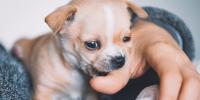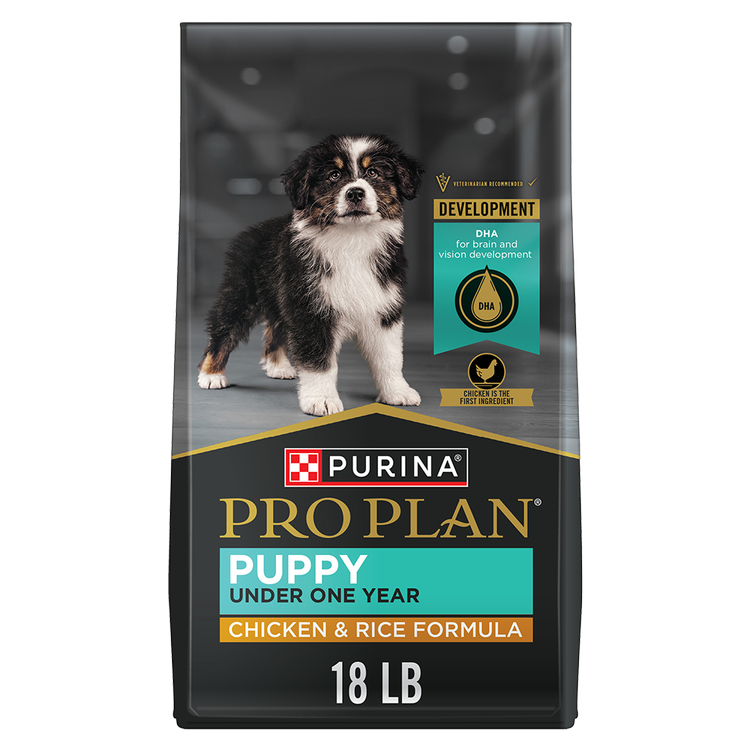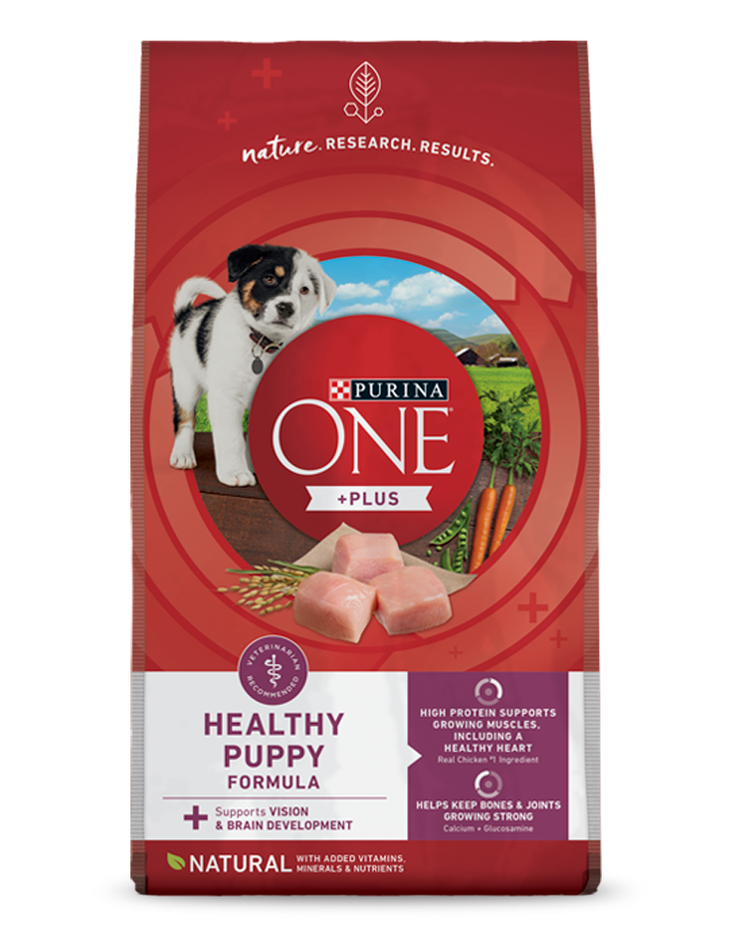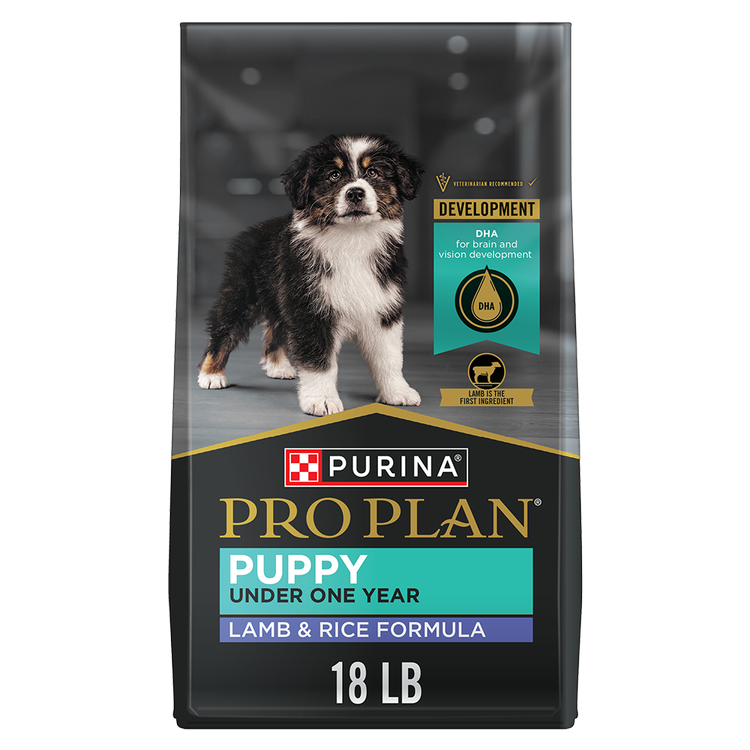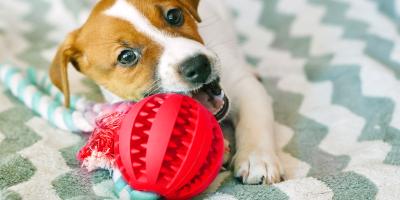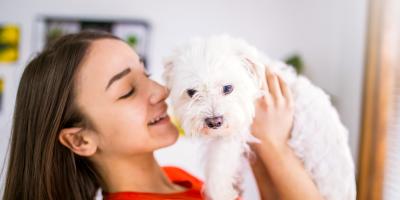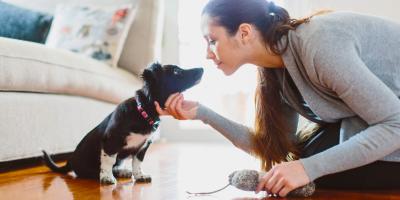For puppies, biting, nipping and chewing is normal behavior. Proud new puppy owners may think the nibbles on a finger or hand are cute.
Those puppy teeth are needle-sharp, though, and regardless of how cute it may be, it’s important to establish boundaries early. Otherwise, playful puppy biting will become painful dog biting.
Biting often occurs when puppies want to play. Puppies usually learn to play with and nip their siblings from a young age and learn their boundaries from how their siblings and their mother react.
For example, if they bite one of their littermates and that puppy lets out a loud “yip!” and stops playing, they’ll know they’ve bitten a bit too hard. When a puppy is removed from their litter early (before eight weeks old), they may not have mastered those boundaries, which means it’s your job to teach them.
How to Get a Puppy to Stop Biting (Bite Inhibition)
Teaching your dog appropriate behavior like bite inhibition should start early, as it’s much harder (though not by any means impossible) to modify the behavior of adult dogs. Teaching your puppy bite inhibition is showing them how to moderate the strength of their bite so they don’t inadvertently injure their human companions or any other family pets.
Let Your Puppy Know They’re Biting Too Hard
Teaching bite inhibition starts at playtime. Because they’re still learning and don’t know better, there’s a good chance your puppy, while mouthing you, will playfully chomp down on your hand or one of your fingers or toes.
When they do this, react similarly to how their littermates might react by letting out a loud “Ouch!” or even a high-pitched “Yip!” If your puppy reacts by stopping their biting behavior, make sure to give them lots of praise and maybe even a treat.
Interrupt Playtime
In some cases, letting out a loud noise will make your puppy even more excited, and they might continue to bite. At this point, ignore your puppy, stop any interactions and walk away.
Stopping playtime abruptly is far more effective than yelling at your puppy or punishing them. Getting upset with your puppy shows them they can get a reaction out of you, which they may see as a good thing. Interrupting playtime and walking off, on the other hand, is the last thing your puppy wants you to do.
Redirect Your Puppy Toward a Toy
Another way to train a puppy not to bite is to give them an age-appropriate puppy toy to chomp down on when they start to nibble on you. This enticing alternative to chewing on their human companion opens up all kinds of fun playtime favorites such as fetch and tug of war.
Reward Non-Biting Behavior & Redirecting
Since many dogs are food-motivated, you can use this as an advantage when teaching your dog bite inhibition. Train your dog to use their mouth gently by waving a closed fist in front of their face and pulling it away if they try to nip.
Try it again and if your puppy doesn’t bite this time, reward them with a treat or a small piece of their food. To help with inhibitory control overall, you can have a treat in your hand and wait for them to hold back before rewarding them. You can also play around with having treats in either hand, again, making sure to only reward when they are gentle. This can also help ensure they take treats from you gently, which makes training more pleasant.
If your puppy is really wanting to mouth something, have appropriate toys around to help redirect their behavior. If they start mouthing you, signal them to stop and then redirect them to an appropriate chew toy.
Provide a Signal
While yelling at your puppy for biting is not advisable, it is okay to use a simple, firm signal such as “No!” when they make a mistake. If your puppy gets nippy while playing, stand up, take your hands away and say “No!” Once they're sitting calmly, reward them with a treat and go back interacting/playing with them.
Things You Shouldn’t Do When You’re Trying to Stop Puppy Biting
There are many steps to take to help curb puppy biting and others you should avoid, including:
- Don’t yell at your puppy, tap your puppy on the nose or hold their mouth shut when they bite. This will only confuse your puppy and teach them not to trust you when you want to play.
- Don’t antagonize your puppy to get him to bite for training or any other purpose.
- If you have children, don’t let allow them to put their face too close to your puppy’s face while you’re working on bite training.
- Don’t give up on your puppy and think they’ll learn eventually on their own. For consistent results and mutual understanding between you and your puppy, they need to know their boundaries every time you play together.
Puppy training is an essential part of being a dog owner and even when it’s frustrating or seems like it’s not working, keep at it. In the process of training your puppy to become a well-mannered adult dog, you’ll create a bond and mutual trust that will last a lifetime. If you run into any trouble during training, be sure to reach out to your veterinarian or pet behaviorist for help.
For more helpful training insights, check out the myPurina app.
For more tips on dogs and puppies, hear from our pet experts on our Pet Expertise page.
For your own personalized dog training plan, download Zigzag, the most advanced dog training app, for free and unlock 1 month of Premium Access with unlimited lessons, tailored guidance, and 24/7 expert support using code PUR30 at payment.
Install Zigzag for free now to get started

Be Rewarded for Your Purina Purchases
Earn and redeem points for Purina products with myPurina app.


